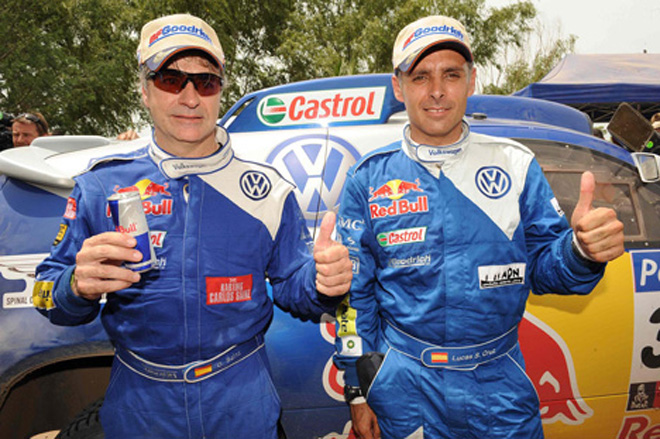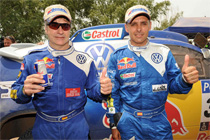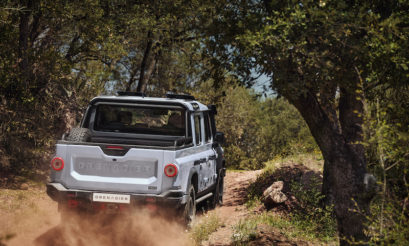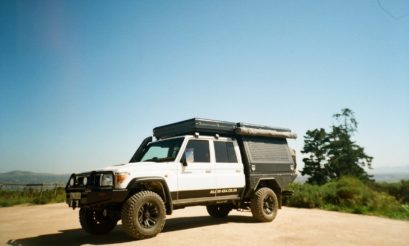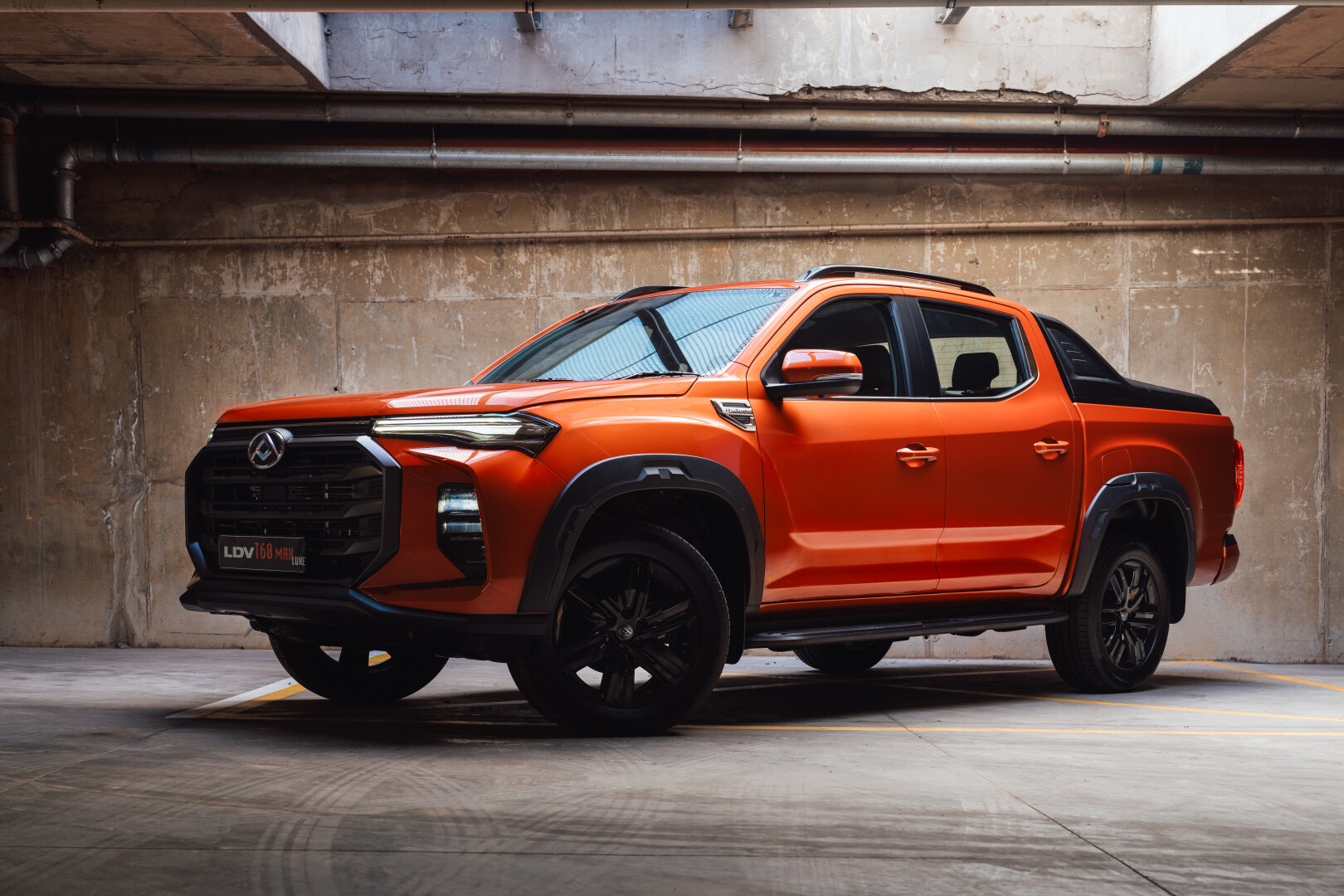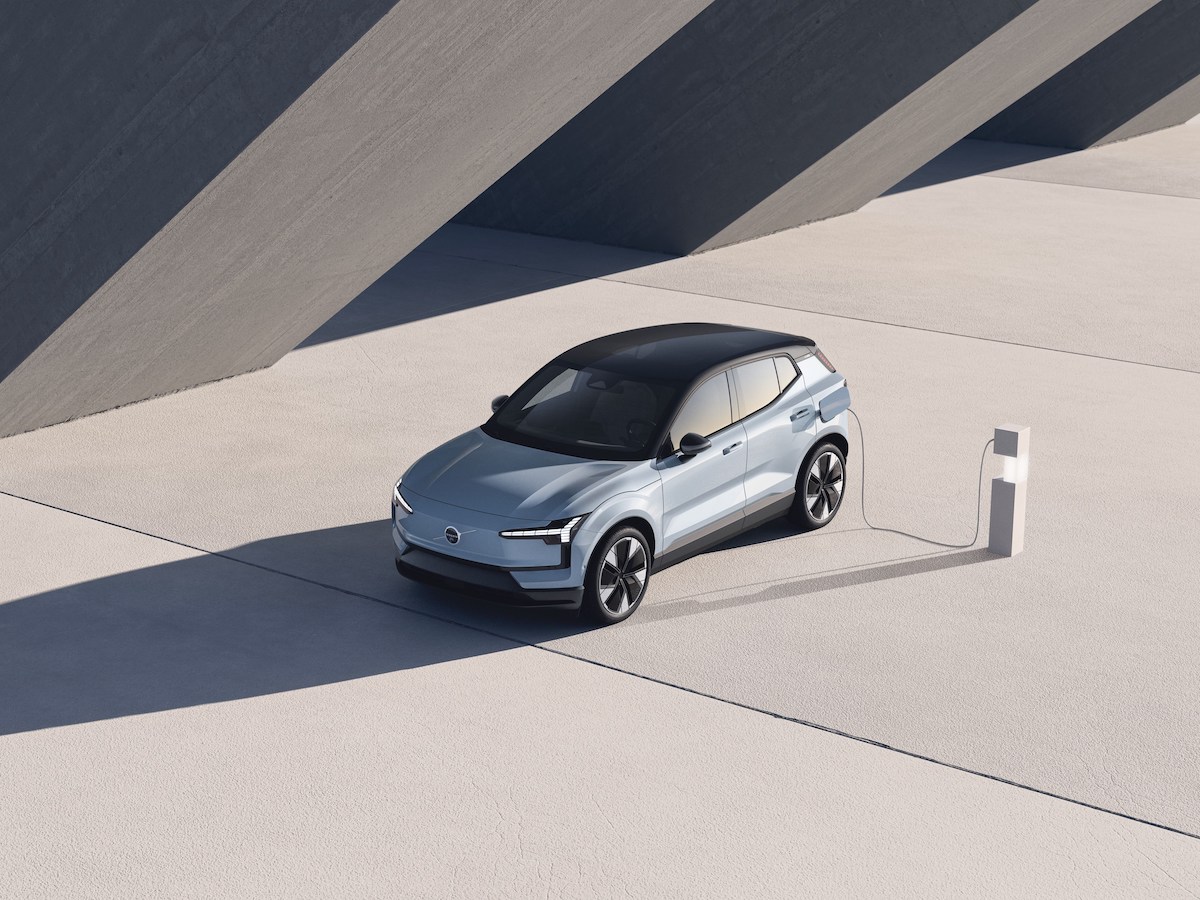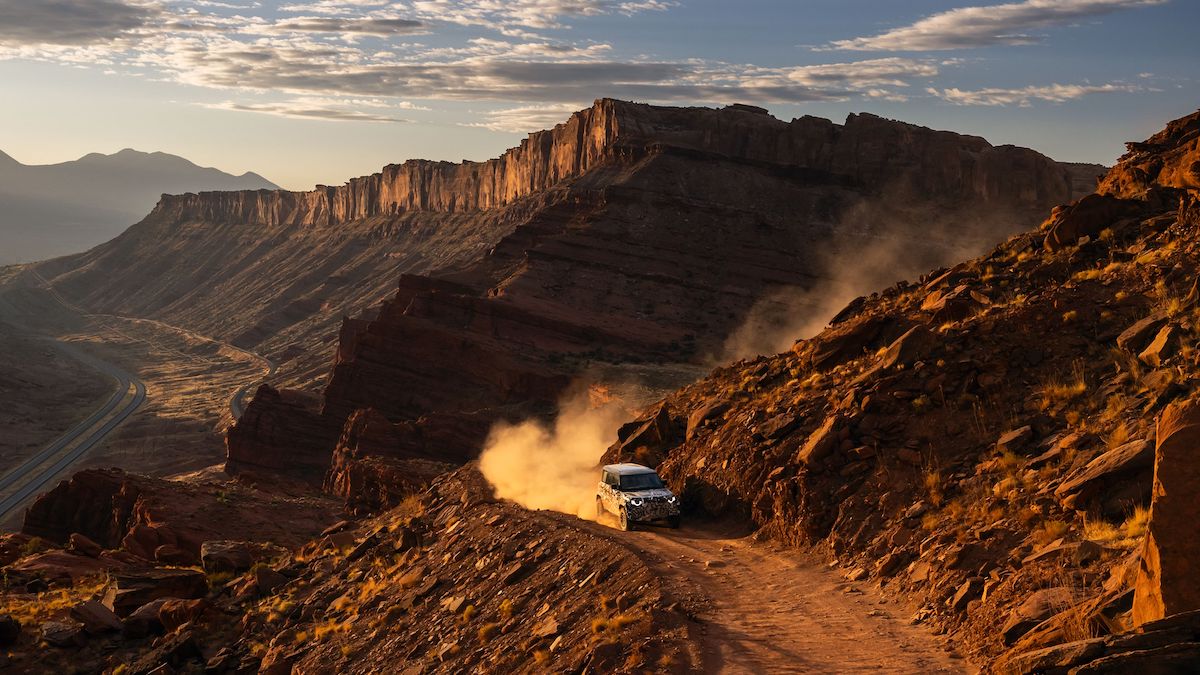Pitchford, the 2009 South African off road champion co-driver, navigated American Mark Miller to third place overall in their Volkswagen Race Touareg in the 32nd Dakar Rally which ended in Buenos Aires, Argentina on Saturday, providing Volkswagen with an historic and emphatic 1-2-3 and a second consecutive victory after the success of De Villiers and German co-driver Dirk von Zitzewitz in last year’s event.
Miller and Pitchford were second in 2009.
Spain’s Carlos Sainz and Lucas Cruz won their first Dakar Rally after 14 days and over 9 000km of driving, completing the 14 special stages and 4 800km of racing section in a time of 47 hours and 10 minutes.
Nasser-Al Attiyah of Qatar and German co-driver Timo Gottschalk were second in the closest finish seen in the car category of the Dakar, 2 minutes 12 seconds behind their Volkswagen team-mates. Miller and Pitchford were 32 minutes and 51 seconds in arrears at the finish.
Volkswagen’s dominance was illustrated by the fact that the closest challengers were the French pairing of nine-time former Dakar champion Stephane Peterhansel and Jean-Paul Cottret in a BMW X3, who completed the marathon race 2 hours 17 minutes 21 seconds behind the winners.
“We were disappointed to finish third, but pleased for Volkswagen. 1-2-3 is an awesome result that Volkswagen richly deserves. This is a great team with a lot of motivated and talented people,” said the 47-year-old Pitchford, who hails from Woodmead in Gauteng. “Congratulations to Carlos and Nasser. They were in a class of their own this time.”
Defending champions De Villiers and Von Zitzewitz lost all chance of repeating their 2009 triumph when they experienced electrical problems on their Race Touareg on the third race day and had to wait almost three hours for assistance from their support truck. From then on they were required to play a support role to their team-mates, carrying additional spares and having to stop and render assistance when needed.
Three stages after their mishap, on the sixth race day, they were called upon to stop and help Brazilians Mauricio Neves and Clecio Maestrelli after they were involved in a multiple rollover in the fifth factory Race Touareg. Neves suffered several broken ribs and De Villiers waited until medical help arrived.
They eventually finished a creditable seventh, 5 hours 10 minutes 19 seconds behind Sainz and Cruz.
It was a race in which the South African off-road champion of 2001 once again had to deal with the disappointment of defeat as he had done in Dakar 2007 in Africa when he was stopped by an under-bonnet fire while comfortably leading.
True to form, he dealt with the disappointment with the same grace and humility with which he handled his historic win last year, the first by a South African in this famous race.
“While we are proud to be members of the winning Volkswagen team, we are naturally very disappointed,” said the 37-year old from Stellenbosch. “All the training and preparation over the past 12 months, including my successful recuperation from back surgery was not rewarded with the success we had worked so hard to achieve.
“From special stage four until the finish we were the ‘water carriers’. Our job was to assist our team-mates still in with a chance of winning the race and we carried lots of spares, making us around 150kg heavier than the others.
“It was hard to maintain our motivation under these circumstances and we certainly felt disheartened at times. But that is how it works. We were part of a team, the best team in the Dakar for the second year in a row, and it was our turn to assist as others did for us in 2009.
“This was a Dakar where nothing went right for us – we had eight punctures on top of everything else – but we look ahead to the next Dakar and will be putting everything we can into preparing ourselves for the new challenges that lie ahead.”
For the record, Volkswagen also won the most stages (seven) with Al-Attiyah taking four, Sainz two and Miller one. It was a fast Dakar with Sainz recording an average speed for the 4 800km of special stages of 101,8 km/h. It was also the closest finish ever in the car category, with the 2 minute 48 seconds gap between Sainz and Al-Attiyah equivalent to a distance of just 3,73km.
